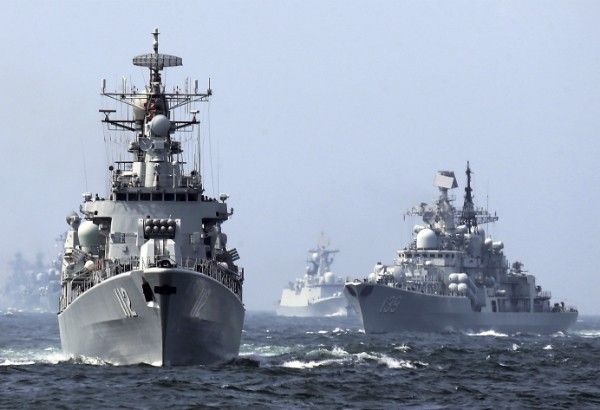Foreign powers enforcing ruling on South China Sea

MANILA, Philippines — Acting Chief Justice Antonio Carpio disputed yesterday Malacañang’s claim that “no power on earth” can enforce an international arbitral court’s ruling invalidating China’s massive claim in the South China Sea and the West Philippine Sea.
Speaking at the first general assembly and forum of the Akademyang Filipino at the University of the Philippines Professional Schools in Taguig City, Carpio said navies of the US, Australia, Britain, Canada, France, India and Japan have been conducting freedom of navigation operations (FONOPs) in the South China Sea and West Philippine Sea since the 2016 ruling by an arbitral tribunal based in The Hague invalidated China’s massive nine-dash line claim.
The same ruling reaffirmed the Philippines’ own maritime entitlements.
“All these naval powers are asserting freedom of navigation. They (foreign navies) are enforcing it for us…even as we speak it (ruling) is being enforced at its core – the ruling that there is no nine-dash line, it has no legal effect and we have high seas and EEZs (exclusive economic zones) in the South China Sea,” Carpio said.
Last week, presidential spokesman Salvador Panelo said “no power on earth” can enforce the ruling. The pronouncement was made on the day Chinese President Xi Jinping arrived for a two-day state visit during which the Philippines and China signed a memorandum of understanding for joint oil and gas exploration in the South China Sea.
An “automatic consequence” of the ruling, he said, is the designation of about a quarter of South China Sea as high seas where freedom of navigation is openly exercised.
The acting Chief Justice, who was part of the Philippine delegation that won the country’s case against China in The Hague, said the Duterte administration cannot just say it would not take sides in the issue.
Instead of warning about possible conflict or “accidents” in the disputed waters already militarized by China, the Philippines should welcome FONOPs to stabilize the situation.
“We should take a position, we should ask the navies of the world to sail and fly over the South China Sea so it will never be a Chinese lake,” he said.
The arbitral ruling has encouraged navies to conduct more FONOPs to protect trade routes and common sources of marine resources, Carpio said.
Australia has assembled its biggest naval task force in 30 years to conduct FONOPs in the South China Sea while the French navy has done the same even if it is thousands of miles away, as such activities have implications in territorial claims in the Arctic Ocean, he said.
Carpio also called on the government and the Filipinos to strongly counter Beijing’s persistent narrative of the Philippines and China being close neighbors, separated only by “a narrow strip of water.”
While such a description may sound innocent or dismissed as harmless propaganda, he warned the Chinese may have meant it to be what is left of the Philippine territory vis-à-vis Beijing’s “nine-dash line.”
The narrative has been hammered into the consciousness of the Chinese people by their government despite its being rebuffed in the arbitral ruling, Carpio said.
“This story is totally false, the fake news of the century. It’s a gigantic fraud on the human race used at the expense of several coastal states,” he pointed out.
Related video:
- Latest
- Trending































